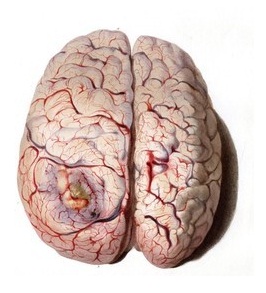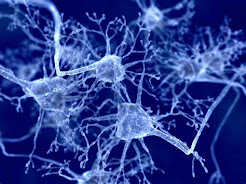What Are The Symptoms of Encephalopathies?

The diagnosis and treatment of encephalopathies are highly controversial and often confusing
Physicians struggle with the differentiation between a milder form of encephalitis, such as influenza, and delirium. They also struggle with recognizing delirium from encephalitis, as a patient who has dementia often does not appear to have a severe alteration in mental status. It is important to recognize that patients who have Alzheimer's, Parkinson's, or psychiatric disorders, and whose symptoms are similar to those of an encephalopathic disease, can also be diagnosed as suffering from a type of brain disorder, even if their symptoms do not meet the criteria for an encephalopathic brain disease.
Most physicians will diagnose the symptoms of any type of brain disease based on the presence of the same features of encephalopathies. The most common types of symptoms associated with encephalopathies include seizures, muscle rigidity, fatigue, increased sensitivity to pain, seizures, decreased consciousness and hallucinations, and weakness of the limbs and extremities. However, the severity of these symptoms will vary with individual cases and should never be used alone to make the diagnosis of an encephalopathies.
One way to differentiate an encephalopathic brain disease from a non-neurological disorder is the lack of physical manifestations of the disease such as seizures, paralysis, muscle rigidity, and fatigue. If you believe that your patient has an encephalopathies, ask him or her to describe any physical signs that they have had that are not associated with the neurological condition, including the symptoms of depression, memory lapses, headaches, etc.
Although the symptoms of encephalopathies are generally related to the symptoms of a common neurological illness, the medical histories of patients suffering from encephalopathies are difficult to establish. The presence of any of the above symptoms may point to a neurological disorder, but other symptoms may be present, so it is important to consider all possibilities.
Because of the lack of physical manifestations of a brain's protective mechanisms, there are no tests that can determine the presence of an encephalopathies with absolute certainty. Many physicians rely on clinical history and physical examination, but are limited to ruling out encephalopathies through lab tests, imaging studies, or brain scans.

The only tests that are available to confirm the diagnosis of neuropsychiatric encephalopathies are neuroimaging studies, such as MRI scans, PET/CT scans, CT scanning, MRI/Magnetic Resonance Spectroscopy (MRS), and Magnetic resonance imaging (MRI), positron emission tomography/radiometry (PET/PET) and magnetic resonance imaging (MRI). These imaging tests can reveal abnormalities in neurotransmitters in the brain, including dopamine and norepinephrine, which are essential for proper brain development.
The use of positron emission tomography (PET) scans or magnetic resonance imaging (MRI) helps show abnormalities in the structure of the brain tissue by producing beams of positrons that bind to oxygen molecules in the brain to reveal the density of these molecules. The positron emitting laser used for PET/CT imaging can reveal abnormal levels of carbon-14 in brain tissue, which indicates an abnormal amount of dithiol atoms in the brain tissue.
In addition, patients with encephalopathies may be diagnosed with brain cancer, as most forms of cancer require the presence of carbon-14 in the brain for the formation of new cells. As long as the carbon-14 is detected in the blood, then there is a strong chance that the patient has cancer in the brain and may have encephalopathies as well.
There are no cures for the disease, although there are several treatments options available
Treatments range from surgical procedures to radiation therapy, which are usually used for mild cases of encephalopathy.
Patients who have developed encephalopathies are usually put on a regimen of medication and monitored closely, because they may have problems with their medications or the severity of the encephalopathy itself. Medications used to treat these neuropsychiatric conditions include psychostimulants, antidepressants, antipsychotics, and anti-seizure drugs.
Some researchers believe that cerebral palsy, diabetes, Parkinson's disease, epilepsy, stroke, and mental retardation may also be caused by encephalopathies. If these conditions are diagnosed in children who are being treated for encephalopathies, they will be put on a standard course of treatment, although these conditions may occur separately.